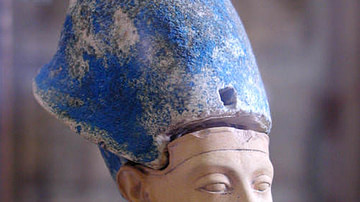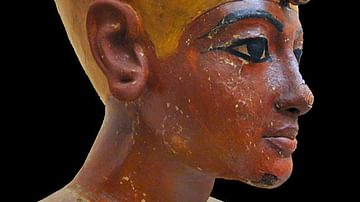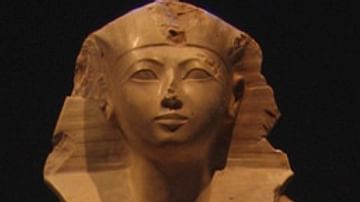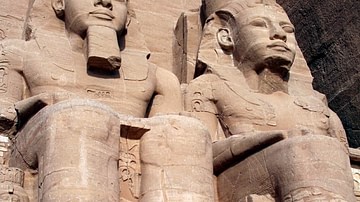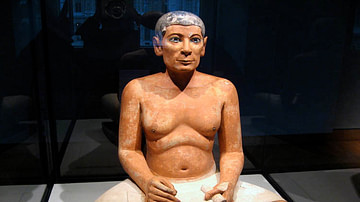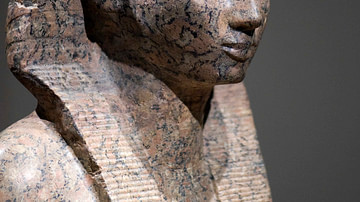Early ancient Egypt was ruled by kings, and only from the New Kingdom period (c. 1570 - c. 1069 BCE) did the title of 'pharaoh' appear. Considered a god on earth and the supreme ruler of his people, a pharaoh was one of the most powerful rulers of any ancient civilization. In charge of everything from religion to building projects, some of the most famous names in history such as Ramesses II and Tutankhamun have left us huge pyramids, colossal stone statues, and golden coffins to admire. With great power comes great responsibility, though, and the pharaoh was expected to rule wisely, justly, and preserve the harmony, or ma'at, in his kingdom. In this collection we have some of the histories, monuments, and artworks related to the pharaohs, including the most famous and first female ruler of Egypt, Hatshepsut.
The pharaoh would officiate at religious ceremonies, choose the sites of temples, and decree what work would be done (although he could not choose priests and very rarely took part in the design of a temple). As 'Lord of the Two Lands' the pharaoh made the laws, owned all the land in Egypt, collected taxes, and made war or defended the country against aggression.
